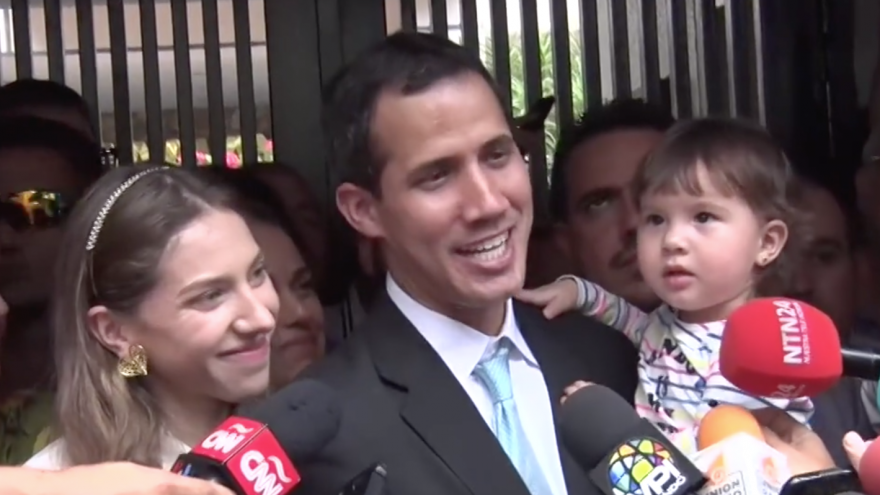“It is public knowledge that several members of the military have been arrested after smuggling uranium from Venezuela, and we believe Iran is one of the main destinations,” said would-be Venezuelan leader Juan Guaidó over the weekend.
In an interview with Israel Hayom, Guaidó discussed his fears of being arrested by the regime of President Nicolás Maduro, sounded the alarm over Iran’s infiltration of the South American country and also delivered a message to Jerusalem.
Now, the picture is completely different. The excitement has waned, international support has become ephemeral—even the European Union withdrew its recognition of him as interim president. Only one thing remains constant: Maduro and Chavezism.
The South American country has maintained close relations with Iran for years now, amid persisting rumors of cooperation with neighboring countries in the field of nuclear energy.
Describing the early stages of Iran’s foothold in Venezuela, Guaidó said, “The Maduro dictatorship allowed Iran to enter. It started when [former President Hugo] Chavez began welcoming companies under sanctions by the U.S. and other countries.”
In January 2019, Israeli Prime Minister Benjamin Netanyahu recognized Guaidó as the country’s official leader, which remains Israel’s official position to this day.
Chavez severed relations between Israel and Venezuela in 2009 in the wake of the Israel Defense Forces’ “Operation Cast Lead” in the Gaza Strip.
Today, Guaidó is grateful and has a message for Jerusalem: “The government of Israel provides important diplomatic support in the war against the dictatorship,” he said.
Opposition members in Venezuela are in constant danger. Their lives are at the mercy of the “dictator,” as Guaidó refers to Maduro. The United Nations has accused his regime of crimes against humanity. Guaidó, for his part, is making efforts to win back international support.
He recently discussed with U.S. Secretary of State Antony Blinken possible paths to “democracy and holding free elections,” but it still isn’t clear what position the Biden administration will take in terms of the humanitarian problem in Venezuela.
Asked about the looming threat of arrest hanging over his head, Guaidó said he was aware of the peril but continues to be sure of his path and principles.
“The dictatorship’s threats exist, and it operates this way because the people don’t support it and it doesn’t have much support in the international community,” he explained.
“Venezuela’s only alternative is free elections and allowing a process for a legitimate government,” he said.
This article first appeared in Israel Hayom.


























